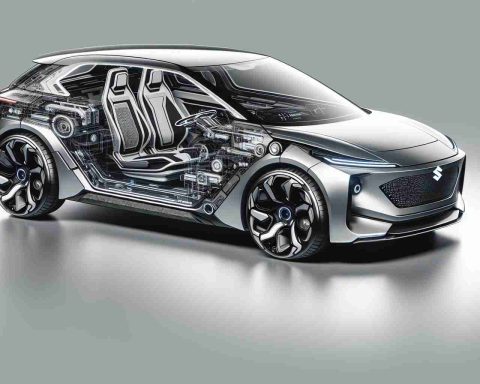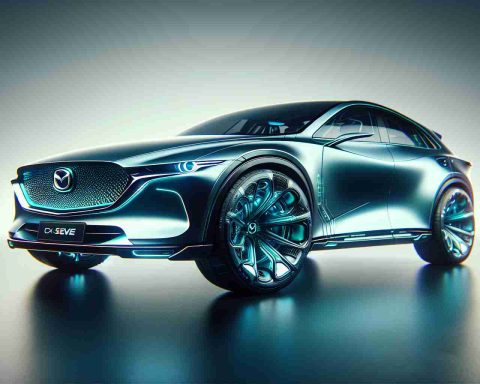- Matthews International won arbitration against Tesla, allowing it to commercialize its Dry Battery Electrode (DBE) technology globally.
- This victory positions Matthews as a leader in DBE manufacturing, crucial for electric vehicle and battery markets.
- The ruling eliminates legal uncertainties, enabling Matthews to expand rapidly in the DBE market.
- Matthews plans to market its innovative technologies immediately, focusing on energy efficiency and scalability.
- The acquisition of a new patent on DBE production methods enhances Matthews’ competitive edge and ambition.
- This development represents a significant boost for the future of battery innovation and energy solutions.
In a thrilling turn of events, Matthews International has emerged victorious in its arbitration with Tesla, igniting excitement in the world of battery technology. The February 5 ruling cleared the path for Matthews to unleash its innovative Dry Battery Electrode (DBE) technology to manufacturers globally, leaving behind a year-long legal struggle.
With this pivotal decision, Matthews emphasized its deep-rooted expertise in DBE manufacturing, which began long before its collaboration with Tesla. This legal affirmation not only strengthens Matthews’ position but also aligns perfectly with the soaring demand for efficient battery solutions among electric vehicle and battery manufacturers.
No longer stifled by legal uncertainty, Matthews is poised for rapid expansion in the DBE market. The company is set to commence marketing its groundbreaking technologies immediately, providing crucial solutions for those striving to enhance energy efficiency and scalability in production processes.
Additionally, the recent acquisition of U.S. Patent No. 12,136,027 B2 on innovative DBE production methods further fuels Matthews’ ambitions. As conventional wet electrode manufacturing struggles to keep pace, Matthews is ready to lead the charge, promising affordability and efficiency in the evolving landscape of battery technology.
The takeaway? Matthews International’s victory is not just a win for the company; it marks a significant leap towards the future of battery innovation, promising exciting opportunities for partnerships and advancements in energy solutions. Get ready to witness the rise of DBE technology!
Matthews International Triumphs: The Dawn of a New Era in Battery Technology
Overview of Matthews International’s Victory
In a significant development within the battery technology realm, Matthews International has successfully navigated its arbitration with Tesla, which was finalized on February 5. This ruling has enabled Matthews to introduce its innovative Dry Battery Electrode (DBE) technology to manufacturers without the hindrance of legal disputes, signaling a major breakthrough in the industry.
Key Features of DBE Technology
– Efficiency in Energy Production: DBE technology promises to enhance energy density and reduce costs in battery manufacturing, making it a potential game-changer for electric vehicles (EVs) and energy storage systems.
– Environmental Impact: The move towards dry electrode manufacturing is expected to lessen the environmental footprint compared to traditional wet methods, aligning with sustainability goals in energy innovation.
– Scalability: Matthews aims to address the increasing demand by large-scale production capabilities, thereby contributing significantly to the burgeoning market for EV batteries.
New Insights and Trends in Battery Technology
# 1. Market Forecasts:
The global battery market is forecasted to reach approximately $100 billion by 2030, with DBE technology expected to constitute a significant portion due to its cost-effective and efficient nature.
# 2. Competition and Innovations:
With competitors eyeing innovations in battery production, Matthews’ acquisition of U.S. Patent No. 12,136,027 B2 on dry electrode methods places it ahead in the race. This could spur further advancements and collaborations.
# 3. Use Cases and Applications:
DBE technology is poised for diverse applications beyond just electric vehicles, including renewable energy storage, consumer electronics, and even aerospace, showcasing its versatility.
Related Questions
# What advantages does DBE technology have over traditional battery manufacturing methods?
DBE technology reduces manufacturing costs and time while increasing energy efficiency. It minimizes the use of water and volatile solvents, making it more environmentally friendly.
# How will Matthews International’s victory affect the future of electric vehicle production?
Matthews’ ability to market its DBE technology could significantly lower battery costs for manufacturers, thus accelerating the transition to electric vehicles by making them more affordable for consumers.
# What are the potential challenges Matthews might face following this legal victory?
Despite the legal win, Matthews may encounter challenges in scaling production rapidly, achieving market penetration amid strong competition, and maintaining quality during the transition to large-scale manufacturing.
Conclusion
Matthews International’s victory marks a pivotal moment for battery technology, setting the stage for unprecedented advancements in energy solutions. With its DBE technology now available, the industry can look forward to improved efficiency, lower costs, and more sustainable practices.
For more information on these developments, visit Matthews International.















